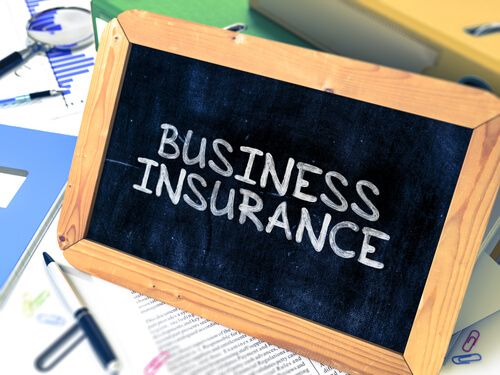Starting and running a small business is an exciting journey, but it comes with its fair share of risks. Small business insurance is not just an optional safety net—it’s a necessity that can protect your business from financial ruin. Whether you own a small retail shop, a consultancy firm, or an online business, having the right insurance policy can save you from unexpected disasters.
What Is Small Business Insurance?
Small business insurance is a policy designed to protect business owners from financial losses due to accidents, property damage, lawsuits, and other risks. Just like you wouldn’t drive a car without insurance, you shouldn’t run a business without protection.
Why Do You Need Small Business Insurance?
Running a business means dealing with uncertainties. Here’s why having small business insurance is crucial:
- Protects against lawsuits – If a customer sues you, insurance covers legal fees and settlements.
- Covers property damage – Whether due to fire, theft, or natural disasters, insurance helps recover losses.
- Ensures business continuity – If your business is forced to close temporarily, insurance can help cover lost income.
- Safeguards employees – Provides coverage for employee injuries and medical expenses.
- Meets legal requirements – Many states require businesses to have certain types of insurance.
Types of Small Business Insurance
There isn’t a one-size-fits-all policy for businesses. Here are different types of small business insurance you should consider:
1. General Liability Insurance
This is one of the most essential policies. It covers:
- Bodily injury to customers or third parties
- Property damage caused by your business
- Legal fees and settlements
2. Professional Liability Insurance (Errors & Omissions Insurance)
If your business provides services, this is a must-have. It protects against:
- Claims of negligence or mistakes
- Legal defense costs
- Financial losses due to poor advice or errors
3. Commercial Property Insurance
Covers your business assets, including:
- Buildings, furniture, and equipment
- Inventory and supplies
- Damages from fire, vandalism, or natural disasters
4. Business Interruption Insurance
If an unexpected event forces your business to shut down, this policy helps by covering:
- Lost income
- Rent and payroll expenses
- Temporary relocation costs
5. Workers’ Compensation Insurance
If you have employees, you’re likely required to carry this insurance. It covers:
- Medical expenses for work-related injuries
- Lost wages during recovery
- Legal fees in case of lawsuits
6. Cyber Liability Insurance
With businesses relying on digital tools, cyber insurance protects against:
- Data breaches and hacking attempts
- Legal costs associated with cybercrimes
- Financial losses due to cyber attacks
7. Commercial Auto Insurance
If your business owns vehicles, this policy covers:
- Accidents and vehicle damage
- Injuries caused to others
- Theft and vandalism
How Much Does Small Business Insurance Cost?
The cost of small business insurance depends on several factors, including:
- The type of business you run
- Number of employees
- The level of risk involved
- Coverage limits and deductibles
| Insurance Type | Average Cost per Month |
|---|---|
| General Liability | $40 – $75 |
| Professional Liability | $60 – $150 |
| Property Insurance | $50 – $100 |
| Workers’ Compensation | $70 – $200 |
| Cyber Liability | $50 – $200 |
| Business Interruption | $40 – $120 |
Prices vary based on the insurer and coverage plan.
How to Choose the Right Small Business Insurance
Finding the best insurance policy for your business can feel overwhelming. Here are some tips:
1. Assess Your Business Risks
Consider the potential threats your business might face. If you handle sensitive customer data, cyber insurance is essential. If you operate a physical store, property insurance is crucial.
2. Compare Quotes from Different Providers
Don’t settle for the first option you find. Compare multiple insurers to get the best coverage at the lowest price.
3. Check Policy Exclusions
Read the fine print. Some policies exclude certain damages, such as floods or intentional harm.
4. Work with an Insurance Broker
An expert can help you navigate the complexities of insurance and find the most suitable plan.
5. Re-evaluate Your Policy Annually
Your business will grow and change over time. Make sure your coverage evolves with it.
Common Myths About Small Business Insurance
Many business owners skip insurance due to misconceptions. Let’s bust some common myths:
Myth 1: My Business Is Too Small to Need Insurance
Even the smallest businesses face risks. A lawsuit or accident can be financially devastating.
Myth 2: Home-Based Businesses Don’t Need Insurance
Homeowner’s insurance doesn’t cover business-related damages. You need separate coverage.
Myth 3: Insurance Is Too Expensive
Policies can be customized to fit your budget. Plus, the cost of insurance is much lower than potential lawsuits or damages.
Where to Buy Small Business Insurance
You can purchase small business insurance from various providers. Here are some popular options:
- Nationwide
- State Farm
- Hiscox
- Progressive
- The Hartford
You can also check online insurance marketplaces like Next Insurance or Simply Business for easy comparison

